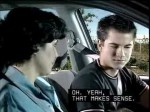GI Heath: Getting the best GI doctor makes all the difference | Business In order to properly ensure this aspect of overall health, having the best GI doctor is essential. When experiencing a digestive disorder, it is always better to directly consult a professional who is dedicated to the study of this field such as Dr. Peyton P. Berookim of the Gastroenterology Institute of Southern California. By seeing a specialist GI doctor, a more accurate and timely diagnosis and treatment plan can be obtained, leading to a faster recovery period. Beverly Hills based Dr. Berookim treats the full range of conditions affecting the digestive tract, with a special interest in the detection and prevention of colon and esophageal cancer.
Posts Tagged ‘ study ’
77 Percent Of Online Health Seekers Start At Search Engines [Pew Study]
77 Percent Of Online Health Seekers Start At Search Engines [Pew Study] : google-health-computer-featuredAlthough there’s long been a debate over the accuracy of health information online, many U.S. Internet users aren’t hesitant to use the Web when they want answers to health-related questions. And rather than dedicated health sites, the vast majority of them begin their research at a search engine.
Study Says Bicycling Can Save Cities Billions of Dollars

Environmental Health Perspectives published findings from a study by scientists at the University of Wisconsin that reveal shocking relief for wallets from simply switching to two wheels. Focusing on eleven metropolitan cities in the upper Midwest, the study surveyed the economic and health benefits of swapping a car for a bicycle for trips less than five miles in length. more › Originally posted here: Study Says Bicycling Can Save Cities Billions of Dollars
Josh Welsh: Studying the Economics of Independent Film: A Proposal
As we wrap up the eighth annual Film Independent Forum , I’m struck by the amount of discussion about the economics of independent film lately, and the widely divergent perceptions of where we are right now. Some people point to a good sales year at Sundance and see it as a sign that the indie business is back to some degree of health. Others continue to find the basic model of indie financing and films sales to be broken, one decent year at Sundance notwithstanding. The problem, it’s argued, is that it’s almost impossible to sustain a career as an independent filmmaker, financially speaking. One of the best recent pieces on this topic was Ted Hope’s blog back in August, ” How Much Does An American Indie Producer Get Paid? ” Hope breaks down how much a starting producer, and how much an experienced producer, can expect to get paid on a film these days. The numbers aren’t pretty, to say the least, and they lead to a sobering conclusion: “Recognizing what it costs to live in NYC, it looks like one might need to produce 5-10 features a year to make it work. It doesn’t leave much room for a hands-on craft-oriented approach to producing.” And of course the question that Hope is asking about producers could also be asked about any number of other positions in independent film. Hearing so many people talk about the difficulty of sustaining a career in independent film can create the impression that there is truly no business here, and that indie film, as the IRS recently argued about documentary film, is more of a hobby than a for-profit business. (See Paul Devlin’s excellent piece on this IRS case at Filmmaker Magazine.) But while it’s obviously true that it’s hard for many independent filmmakers to sustain a career doing what they love, it is simply false that there’s no money in independent film. This fact should be obvious, but it apparently needs to be stated: there is a lot of money in independent film. Money changes hands every time someone makes a film, regardless of how small the budget. Money changes hands every time a festival screens a film, regardless of how famous or obscure the festival. Money changes hands every time a company puts sponsorship dollars towards a festival. Money changes hands every time a distributor buys and releases a film, no matter how small the release. And so on. The amounts changing hands might be very small or very large, and those amounts may or may not ever go into the filmmakers’ hands. Regardless of who is profiting and by how much, however, there is undeniably a lively sphere of economic action here that we might as well call the independent film business. The sheer number of films being made each year, the number of festivals springing up to screen them, and the number of agents, attorneys, sales agents and publicists working the indie film beat, is evidence enough for general conclusion: it’s economically worthwhile for lots of people to be involved in independent film. While there’s nothing wrong with focusing on the plight of the individual filmmaker in all of this, I propose that we step back and take a much bigger picture. What’s really needed is a study that will look at independent film as a broad sphere of economic activity and that will try to measure this sphere as accurately and dispassionately as possible. How much money is being spent annually on independent film — not just box office dollars, which the MPAA measures annually, but on production, festivals, sales, marketing, agency fees, box office, etc.? In independent film, who is spending and on what? Is that total amount increasing or decreasing over time? The study would provide as much detail as possible about what types of people and organizations were involved in those economic transfers along the way — cast and crew, rental houses, labs and post facilities, agents, managers, attorneys, producer reps, publicists, festivals, theatrical and non-theatrical distributors, theater owners, etc. It would be interesting to learn, too, something about wages for filmmakers: how many of the filmmakers (writers, directors, producers) were paid for their work, and how many of them saw any additional profit from their films if and when their films sold? Getting comparable information on the distributor’s side would be essential, too — how much was spent on P&A, which films were profitable and by how much, etc. (I know, I know — hard figures to get!) A couple of objections to this proposed study: first, it’s notoriously hard to define ‘independent film’ and for purposes of such an economic study you would need to have a clear, workable definition that everyone could agree on. Second, many people in independent film are loathe to reveal numbers — filmmakers understandably give cagey answers about their budgets, distributors are often accused of being notoriously un-transparent in their accounting, etc. Given that, how could anyone possibly measure something as slippery as the economic activity in independent film? The honest answer to this second question is that it would not be easy but there’s no reason to think it’s impossible. People in other businesses have the same interest in concealing information and playing their cards close to the vest, but there are good economic studies of lots of industries. What’s missing today is serious, in-depth, economic investigative journalism that takes a real look at independent film. With regard to the first objection, that independent film is too hard to define: true enough. So here’s another proposal: instead of trying to do an economic study of all of independent film (whatever that is), lets start by taking one very small segment of the film business that we can agree is pretty obviously part of independent film. Let’s begin by focusing on the narrative films to play in U.S. Dramatic Competition at Sundance. And let’s focus on one particular year — films that played there, say, three or four years ago. Those films have presumably run their course, economically speaking. If they’re going to sell, they have probably sold by now; if they are going to reach an audience, they have presumably done that by now as well, at least in large measure. Someone might argue that focusing on films in Sundance’s Dramatic Competition could only result in a very skewed picture of independent film. After all, those films would presumably have a much higher profile than films from the same year that didn’t get into any major festival, so you can’t really extrapolate from them at all. True enough. But the point here is not to extrapolate or to draw broader conclusions — at least not yet. It’s really just about selecting one clearly defined group of independent films, and studying their economics as closely as possible to see what we find. Even focusing on that small group of films, this study obviously would be enormously challenging to pull off. I have no idea what the results would look like, but I bet they would be fascinating. Each year at the Forum, Film Independent compiles detailed, written case studies of films that recently played the festival circuit and either sold or did not, either did well theatrically or did not, etc. These case studies, which are based on the filmmakers’ frank and revealing first-person accounts of the sales process, could form the first part of this kind of economic study. Here’s hoping that some intrepid journalist or economic historian attends this year and decides to try to paint the full picture. Original post: Josh Welsh: Studying the Economics of Independent Film: A Proposal
Top 10 Reasons for Failing the Driving Test Scores Captioned

Thisvideo features open captions for the hearing impaired. To view other video options, visit www.youtube.com/californiadmv. Save Time! Go Online! www.dmv.ca.gov Renew driver licenses and vehicle registrations, buy personalized plates, file change of address and vehicle transfer forms, request refunds, find nearby offices and hours of operation, make office and testing appointments, study driver handbooks and other testing materials, take interactive exams and more. The California Department of Motor Vehicles (DMV) tests and licenses drivers, maintains driving records, registers and issues titles to vehicles and vessels, investigates auto and identity related fraud, issues disabled placards, licenses vehicle dealers, salespersons, dismantlers, driving and traffic violator schools, and issues permits to commercial truckers. Visit us online at www.dmv.ca.gov. Copyright 2007 California Department of Motor Vehicles
Top 10 Reasons for Failing the Driving Test #4 Captioned

This video features open captions for the hearing impaired. To view other video options, visit www.youtube.com/californiadmv. Save Time! Go Online! www.dmv.ca.gov Renew driver licenses and vehicle registrations, buy personalized plates, file change of address and vehicle transfer forms, request refunds, find nearby offices and hours of operation, make office and testing appointments, study driver handbooks and other testing materials, take interactive exams and more. The California Department of Motor Vehicles (DMV) tests and licenses drivers, maintains driving records, registers and issues titles to vehicles and vessels, investigates auto and identity related fraud, issues disabled placards, licenses vehicle dealers, salespersons, dismantlers, driving and traffic violator schools, and issues permits to commercial truckers. Visit us online at www.dmv.ca.gov.
Top 10 Reasons for Failing the Driving Test #1 Captioned

This video features open captions for the hearing impaired. To view other video options, visit www.youtube.com/californiadmv. Save Time! Go Online! www.dmv.ca.gov Renew driver licenses and vehicle registrations, buy personalized plates, file change of address and vehicle transfer forms, request refunds, find nearby offices and hours of operation, make office and testing appointments, study driver handbooks and other testing materials, take interactive exams and more. The California Department of Motor Vehicles (DMV) tests and licenses drivers, maintains driving records, registers and issues titles to vehicles and vessels, investigates auto and identity related fraud, issues disabled placards, licenses vehicle dealers, salespersons, dismantlers, driving and traffic violator schools, and issues permits to commercial truckers. Visit us online at www.dmv.ca.gov. Copyright 2007 California Department of Motor Vehicles
Top 10 Reasons for Failing the Driving Test #0 Captioned

This video features open captions for the hearing impaired. To view other video options, visit www.youtube.com/californiadmv. Save Time! Go Online! www.dmv.ca.gov Renew driver licenses and vehicle registrations, buy personalized plates, file change of address and vehicle transfer forms, request refunds, find nearby offices and hours of operation, make office and testing appointments, study driver handbooks and other testing materials, take interactive exams and more. The California Department of Motor Vehicles (DMV) tests and licenses drivers, maintains driving records, registers and issues titles to vehicles and vessels, investigates auto and identity related fraud, issues disabled placards, licenses vehicle dealers, salespersons, dismantlers, driving and traffic violator schools, and issues permits to commercial truckers. Visit us online at www.dmv.ca.gov. Copyright 2007 California Department of Motor Vehicles




